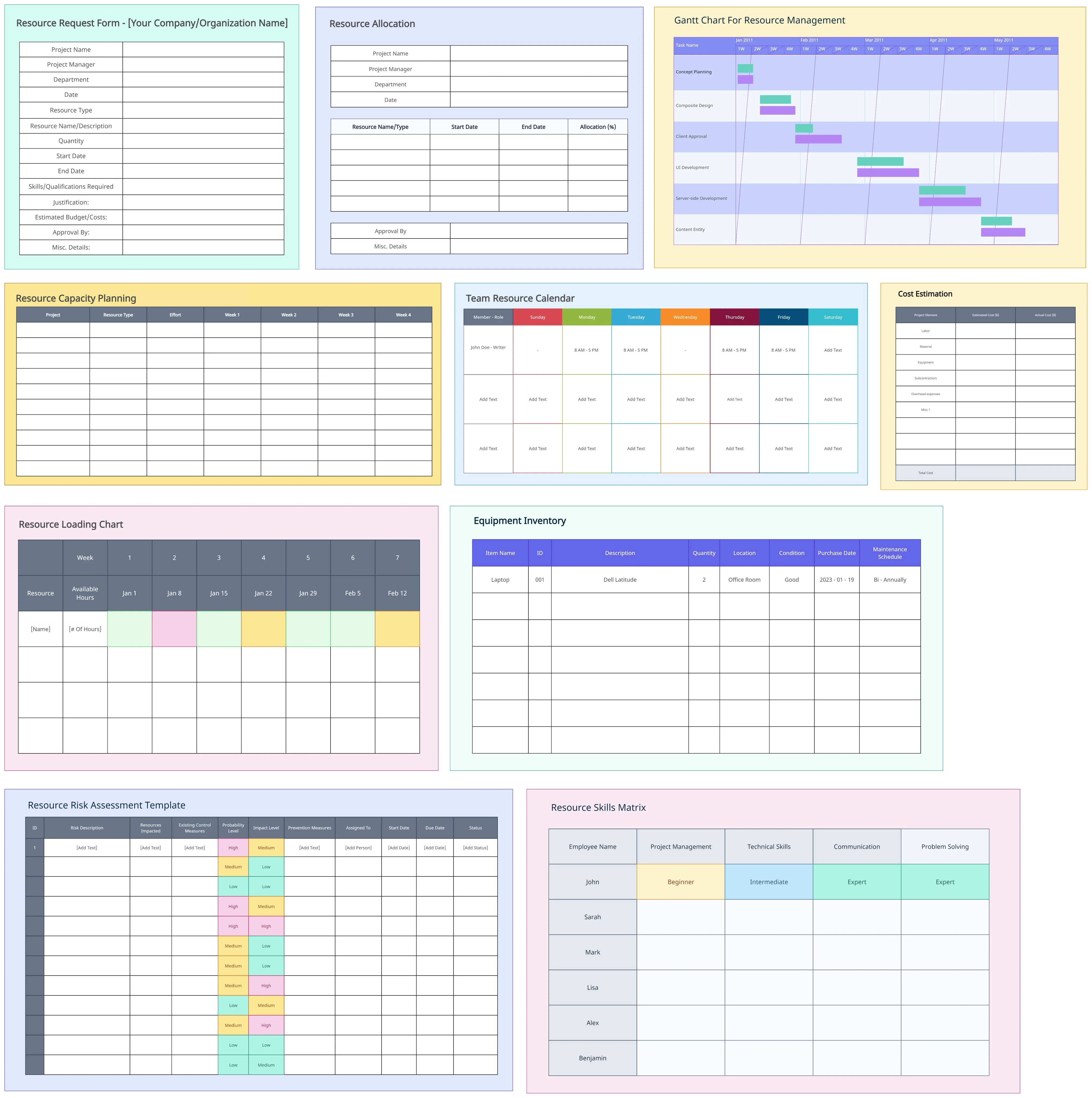Keeping expenses under control is one of the most crucial aspects of project management. Expenses have the ability to drive up prices faster than you anticipate, particularly in complex projects. To keep their budgets on track, project managers must practice proactive cost management.
Understanding Project Cost Management
At the heart of every successful project lies a critical component: project cost management. This multifaceted discipline is more than just keeping an eye on expenses; it’s about strategically guiding a project through its financial journey from conception to completion. Project cost management encompasses a range of activities designed to ensure that a project is completed within the approved budget.
The Four Pillars of Project Cost Management
Mastering project cost management is akin to a balancing act, where the project manager must juggle various elements to keep the project within budget and on track. The four pillars of project cost management—resource planning, cost estimating, cost budgeting, and cost control—serve as the foundation for a successful project financial strategy.
- Resource Planning: This is the first step in project cost management, where you determine what resources (people, equipment, materials) are needed to complete the project. It’s about allocating the right resources at the right time to avoid bottlenecks and minimize costs. For instance, using Creately’s visual kanban project management feature can help in mapping out resource allocation and availability. For more details check out our guide on resource planning.
Cost Estimating: After planning resources, the next step is to estimate the costs associated with them. This involves predicting the expenses for resources and other project-related costs. Accurate cost estimating is crucial for setting a realistic budget and is a skill that improves with experience and the use of the right tools.
Cost Budgeting: Once you have an estimate, you can create a cost budget. This is a financial plan for the project that outlines expected costs and revenue. It serves as a benchmark against which actual performance can be measured. Effective project budgeting ensures that the project remains financially viable from start to finish.
- Cost Control: The final pillar is cost control, which involves monitoring project expenses in real-time and making adjustments as needed to stay within budget. Real-time cost tracking, a feature of Creately, allows for immediate visibility into cost variances and enables proactive management of the project budget.
Integrating these components into a cohesive cost management plan is essential. Each component plays a vital role throughout the project lifecycle, from the initial planning stages to the final project closeout. By effectively managing project costs, you can ensure that your project is delivered on time, within scope, and on budget, ultimately contributing to the overall success of the project.
The Importance of Real-Time Cost Management
In the dynamic landscape of project management, maintaining budget adherence is a critical challenge. Real-time cost tracking is not just a feature; it’s a strategic advantage that can make or break the success of a project. Here’s how it plays a pivotal role:
Immediate Visibility: With real-time cost tracking, project managers gain immediate visibility into where every dollar is going. This transparency allows for proactive adjustments before costs spiral out of control.
Data-Driven Decisions: Access to up-to-the-minute financial data empowers managers to make informed decisions. Whether it’s reallocating resources or postponing non-critical tasks, these decisions are crucial for staying within budget.
Early Warning Signs: Real-time tracking acts as an early warning system, highlighting cost overruns as they happen. This enables teams to address issues promptly, rather than being surprised by them at the end of a project cycle.
Enhanced Accountability: When team members know that costs are being monitored in real time, it fosters a culture of accountability. This can lead to more mindful spending and efficient work practices.
Challenges in Project Cost Management
Project cost management is a critical aspect of project management that, when not handled properly, can lead to significant challenges. Here are some common obstacles that project managers face:
Inaccurate Cost Estimates: Without precise forecasting, projects can quickly exceed their budgets, leading to cost overruns.
Lack of Real-Time Data: Managing project costs effectively requires up-to-date information, which can be hard to obtain without the right tools.
Complex Resource Allocation: Balancing the costs of labor, materials, and equipment is a delicate task that can easily go awry.
Change Management Difficulties: Projects are dynamic, and costs can escalate if changes are not managed efficiently.
The consequences of poor project cost management practices are severe, including blown budgets, decreased profitability, and even project failure. Understanding the complexity of cost management across diverse industries is essential, as each industry has unique cost drivers and constraints. To navigate these challenges, project managers can leverage tools like Creately, which offers features such as real-time collaboration and visual Kanban project management, aiding in better resource planning and cost control. With such tools, project managers can improve their project cost estimation, budgeting, and tracking, ultimately leading to more successful project outcomes.
Strategies to Overcome Project Cost Management Challenges
Improving Project Cost Estimation Accuracy Accurate cost estimation forms the foundation of sound project budgeting and resource allocation. To enhance estimation accuracy, project managers should employ a combination of proven methodologies and data-driven approaches.
Historical Data Analysis: Reviewing past projects’ cost data and performance metrics provides valuable insights into similar projects, enabling more informed estimations. Parametric Estimating: Utilizing mathematical models and algorithms to extrapolate costs based on specific project parameters and historical data points.
Expert Judgment: Consulting subject matter experts and experienced stakeholders to validate assumptions and identify potential cost drivers and risks.
Contingency Planning: Incorporating contingency reserves to account for unforeseen events and uncertainties that may impact project costs.
Maintaining Effective Cost Control Throughout the Project
Effective cost control measures are essential for monitoring project expenditures and ensuring alignment with budgetary constraints. Key techniques for maintaining cost control include: Regular Monitoring and Reporting: Implementing robust monitoring mechanisms to track actual costs against budgeted allocations and identifying variances promptly. This can be done through visual frameworks like a Work Breakdown Structure.
- Earned Value Management (EVM): Utilizing EVM techniques to assess project performance, measure earned value, and forecast future cost and schedule performance.
- Change Management Processes: Establishing clear change control procedures to evaluate and approve modifications to project scope, schedule, and budget, thereby mitigating scope creep and cost overruns.
- Stakeholder Communication: Maintaining transparent communication channels with project stakeholders to keep them informed about cost-related issues, risks, and mitigation strategies.
- Utilizing Technology to Enhance Cost Management Processes
- Advancements in technology offer powerful tools and platforms to streamline and optimize cost management processes. Leveraging technology-driven solutions can significantly improve efficiency and accuracy in cost management.
- Project Management Software: Implementing robust project management software with features for budget tracking, resource allocation, and real-time reporting.
- Advanced Analytics and Reporting Tools: Utilizing data analytics and visualization tools to gain actionable insights into cost trends, performance metrics, and potential risks.
- Artificial Intelligence and Machine Learning: Harnessing AI and ML algorithms to analyze vast datasets, predict cost trends, and optimize resource utilization.
- Cloud-Based Solutions: Adopting cloud-based cost management solutions for enhanced accessibility, scalability, and collaboration across distributed project teams.
How Creately Helps in Estimating Project Costs:
Creately’s visual collaboration and diagramming software integrates seamlessly:
- Real-Time Cost Tracking: Ensuring that project managers have a clear and current picture of their project’s financial health.
- Infinite Canvas : Allows for an expansive view of project costs.
- Visual Kanbans: These project management system helps in prioritizing tasks that align with budget goals.
- Drag and drop tasks: The intuitive canvas further simplifies the process of managing project costs, making it accessible and actionable.
By leveraging these features, project managers can ensure that their projects not only meet their strategic objectives but also adhere to the financial constraints set forth at the outset. In essence, real-time cost tracking is not just about monitoring expenses; it’s about ensuring the financial integrity and success of the entire project.
Mastering project cost management requires three key elements: accurate estimation, effective control, and technology. By analyzing history, using expert judgment, and planning for surprises, estimations become more precise. Monitoring, value management, and change control help stick to budgets. Using project software, analytics, AI, and the cloud strengthens cost management. These strategies help teams overcome challenges and succeed.







